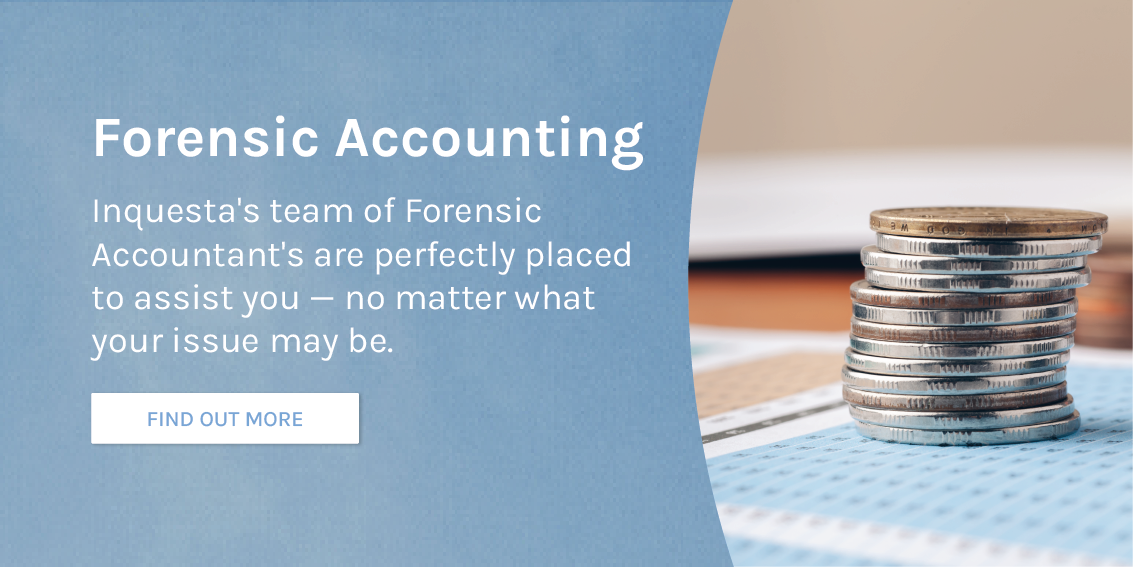Divorce and matrimonial disputes can be a complicated time for all parties involved — even for lawyers trying to bring about a peaceful resolution. It can be common in the process for deceit and ego to take over, particularly during the division of assets. This will only lead one or both parties feeling aggrieved causing complications and headaches for all involved.
A major cause of dispute during this process is over the valuation of important assets, such as a business. Valuing a company one spouse holds control over can be a highly complicated issue. With so many moving parts, it is key that a dedicated expert is on hand to provide advice and ensure that all findings are accurate and done quickly, so you can provide your client with the right advice.
In this blog we explain what business valuation entails, why it is key, the different methods, and more.
What is Business Valuation?
Business valuation is the process of determining the overall value of a company. It’s typically used to determine a fair approximate value in the event of a sale, during divorce proceedings, or in situations regarding tax brackets. It is recommended that an independent valuer is approached in order to make an objective, unbiased assessment of value.
There are multiple potential methods of business valuation. The process could include a company’s estimated future earnings, the current market value of assets, and more. This is why it is important to research the process, to pinpoint which methods will work best for you and ensure you get as accurate and useful valuation as possible.
Why is Business Valuation Important in Divorce?
In divorce, unless a prenuptial agreement is in place, most major assets will be divided — this includes businesses. A company is likely to be one of the highest value assets during divorce proceedings. Accurate and efficient business valuation should therefore be a high priority during this stage of the divorce.
It is absolutely vital that assets are distributed evenly during divorce. However, it is not uncommon, particularly in acrimonious splits, for one party to attempt to hide or undervalue assets they consider highly valuable or have a sentimental value to.
In the case of a company, it is likely to be considered both high value and sentimental due to the work that will have gone into its running. An independent business valuation is an important part of the process as it ensures the even and honest distribution of assets.
How Forensic Accounting Can Help with Business Valuation in Divorce Cases
Divorce is one of the most stressful life events an individual can go through. One of the more complex aspects of divorce proceedings is the financial aspect. A forensic accountant can be vital when it comes to the tracing of assets and the validation of said assets, including businesses, and more; to ensure the process is as efficient and effective as possible.
Stretching out the process unnecessarily will do nothing but put additional pressure and strain both financially and emotionally on both divorcing parties during what is already a highly difficult time.
Forensic accountants are specialists when it comes to investigating financial issues — particularly when it comes to suspected discrepancies. These skills can be particularly handy in divorce proceedings as the sooner hidden or falsified financial assets and money are discovered the more simple the proceedings will be.
The role of a forensic accountant during divorce settlements includes offering their expertise and experience to assist with a number of different things. This can include the following:
Asset Tracing
The most important thing in divorce proceedings and honesty. Withholding information, particularly when it comes to hiding a valuable asset or failing to disclose income is, effectively, an act of fraud which can be punishable by prison time.
Ultimately, it is vital for the fairness of the process for transparency to be at the forefront.
There are all manner of different methods people take to hide assets during a divorce proceedings, these include:
- Offshore accounts
- Given to friends/family for safekeeping
- Delaying bonuses or commissions
- Overpaying taxes
- Shell business set up to store money
- Hiding cash
- Purchasing valuable goods
- Liabilities exaggerated
A forensic accountant can use their investigative abilities to track down any missing assets and money — including a business — no matter how they have been hidden to ensure a fair split is reached. If assets are not included at the beginning of the proceedings then it can be incredibly difficult to guarantee they are shared equally. This is what makes instructing a forensic accountant as early as possible so important.

Tax Planning
When it comes to the sharing of finances and assets during divorce proceedings, a lack of appropriate planning can lead to a large amount of money going into the hands of HMRC.
Utilising the expertise of a forensic accountant enables parties to prepare for such eventualities and minimise their future tax bill once the transfer of assets is completed.
The key tax to keep an eye on throughout the proceedings is Capital Gains Tax. This is a particular issue when disposing of assets, especially property, following a divorce. In the past, a selling party would have up to 18 months to sell their interest before being hit by a large CGT bill, however now they will only be granted half that time.
Asset Valuation
It is common practice during a divorce that all assets for both parties are evaluated and assessed. The process of valuing assets can be difficult and imprecise, particularly when sentimentality and the value relative to the owner compared to other persons is taken into account.
A forensic accountant can utilise their skillset to undertake professional calculations, taking into account market data and projections to come up with much more accurate estimations of value.
Disputing a Business Valuation
Business valuation in divorce is not a concrete formula. It is not uncommon for the figures to be disputed by either party to ensure that everything is as accurate and fair as possible. For example, the owning party may feel that the valuation is exaggerated, while the receiving spouse may feel that the value does not reflect the true value of the company.
Should you wish to dispute a business valuation, then you may be forced to attempt to obtain an official order from the court for disclosure. Disclosure is a legal precedent that allows one person near unrestricted access to information, data, and documents regarding the company.
A forensic accountant will have the expertise and experience to know exactly what to do if a valuation is disputed. This knowledge can help save time and speed up what can be a slow process.
The Different Business Valuation Methods in Divorce
When it comes to business valuation in divorce, there are three common methods. The first two methods are the capitalised future maintainable earning method, and the net assets method. These are traditionally applicable if valuing the total share capital of a company one spouse has a controlling interest in. The third approach is the dividend yield method, which is used to value minority shareholdings.
Let’s take a look at the three different business valuation methods in divorce in greater detail:
Capitalised Future Maintainable Earning Method
The most common method. Capitalised future maintainable earnings is a three step process which includes:
- The calculation of the business’ maintainable earnings over an appropriate period — taking into account any exceptional factors that could have impacted profits during this period.
- Calculating an appropriate multiple based on various factors, including the inherent risk the company may be facing.
- The final step of the capitalised future maintainable earnings method requires you to multiply the maintainable earnings by the appropriate multiple. This figure is then used as a basis for the value of the company in question.
Net Assets Method
The net assets method entails attempting to better reflect the estimated current market value of company assets and liabilities when valuing the business.
The final figure of this method is earned by working out the value of all company assets (including stock), and subtracting it from current business liabilities.
Dividend Yield Method
This method is usually reserved for cases where the spouse is a minority shareholder in a company. The dividend yield is used to value these minority shares. Since minority shareholders have no power over the day-to-day runnings of the company, their investment hinges on dividends.
Calculating dividend yield is done via the following formula: Annual dividend per share divided by the price per share.
How Inquesta Can Help with Business Valuation for Divorce Purposes
The most important thing during divorce proceedings is transparency and fairness. A forensic accountant on your team can be vital in ensuring both throughout the process.
If there are concerns that the other party may be hiding or undervaluing assets, or you could do with expert assistance when it comes to the complicated process of valuing a business; Inquesta’s team of financial specialists are on hand.
Our team of advisors have dealt with all manner of issues that can arise during divorce proceedings. They have seen it all, so they know exactly how to help.
For more information about how Inquesta can help with business valuation for divorce purposes, book a free consultation or contact our team today.



